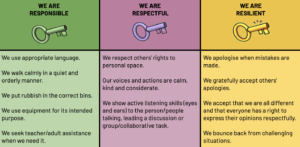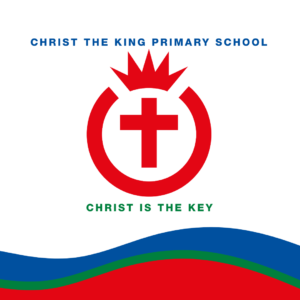Christ the King school follows the School Wide Positive Behaviour approach to managing student behaviour. The premise of this approach is that if we teach and reinforce positive behaviour then students know what is expected of them and what good behaviour looks like. At Christ the King, there are three keys to positive behaviour:
I am Respectful
I am Responsible
I am Resilient
For each key to positive behaviour, we explicitly describe and teach what the positive behaviours look like. Examples listed below give you some idea of what we are teaching students about the desired positive behaviours. Some examples are:
I am Responsible when I inform an adult on duty of anything that may harm or worry me
I am Respectful when I keep my hands and feet to myself
I am Resilient when I work through friendship issues with my classmates
The School Wide Positive Behaviour framework recognises that for 80% of students this approach will work, whilst 15 % of students need extra assistance to manage their behaviours. The final 5% of students need a lot of adult support to manage their behaviour and often a Behaviour Management Plan is developed to support these students. The school introduced a School Counsellor in 2015 to provide the extra support needed for some of our students to manage emotions and behaviours.
School Wide Positive Behaviour also recognises that when students are unable to manage their behaviour, consequences need to follow. Children need to know boundaries as this actually helps them to feel safe. In our response to student misbehaviour, we recognise two levels – major and minor.
If a student is involved in a major incident, a blue form will be written up and parents will receive a phone call from the Deputy Principal providing details of what has happened. An incident form will be sent home outlining the details of the incident, as well as the consequences the school has implemented. It is expected that in partnership with the school, parents will also implement a consequence at home.
If a student is involved in a minor incident, then this is usually dealt with at school. As a follow up to the minor incident, the students may be asked to write a Think Sheet or take part in a restorative conversation with those involved in the incident.


